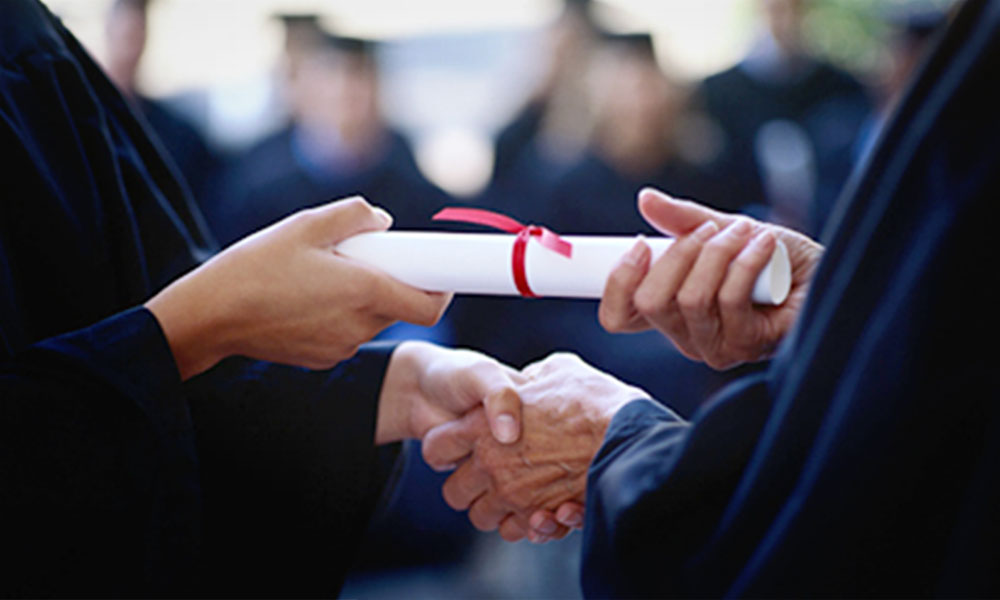LETTER | Advice from your future English professor in the US
LETTER | Thinking about applying to a college in America? If so, you are in great company, since the number of international students enrolled in universities across the United States has never been higher than it is today. Students from all across the globe dream of someday holding that American sheepskin in their hands, almost as much as their parents yearn to inform relatives that their child is now “studying overseas”.
These dreams are not unwarranted; after all, the American university system attracts more students than any other for a good reason. Its institutions eagerly welcome students and introduce them to flexible four-year degrees and countless exchange programmes. So it’s no wonder why so many Asian high-school graduates flock there in pursuit of college and university degrees.
What is troubling, however, is the lack of preliminary research done by many applicants before making the big move. Foreign students often assume that the difficulties in studying in the United States are the college application and visa processes, but for many, the true challenges come when classes begin.
As a half-Malaysian who spent much of my formative years playing congkak on my Ah Mah’s veranda whilst getting eaten alive by the neighbouring kampung’s mosquitos, I may understand more than most American professors about our international students. In a way, I was one of them. And now, many of those students are my own.
I note with pride that most Asian students who grace my classrooms far outperform my local students, by way of attentiveness and diligence. Perhaps this is because there is more at stake for them (it is often the case that foreigners must maintain a certain GPA to retain their status as student visa-holders). Or, perhaps this is because of how their local school systems trained them (despite the fact that old-style systems, such as Malaysia’s, are characterised by many Western educators as oppressive, primitive, and tainted with misogyny).
My take on it? I can never have too many hardworking students who gladly sit and listen to me talk about the English language (admittedly, these students are among the few who find my lame English jokes passingly funny).

There is more to earning an American degree than vigilance, however, and this fact is worth pondering before embarking on that day-long flight across the Pacific, with bags in hand and a final mouthful of roti canai savoured. While the most hardworking Malaysian students may succeed in graduating two years later (a typical Malaysian transfer student completes two years at home and the final two years in the US), they nevertheless may miss out on some of the best lessons an American education has to offer.
You’ll find that most pre-departure advice involves patching up your language skills. Fair enough, but there’s more to it than that. So here are my top three pieces of advice to any Malaysian who may be thinking about earning an American degree:
First, brush up on your conversational English before you go. I’m speaking especially to those of you who attended Chinese or Malay-speaking schools, where the English language is, frankly, given short shrift. Don’t get me wrong: most primary and secondary schools in Malaysia do as well as or better than their American counterparts in preparing students for the rigours of higher education.
But from my firsthand experience and many friendships over the years with students from such schools, I recognise the language handicap so many of these students possess - educationally as well as socially - when studying at American institutions.
Over the years I’ve heard people say, “Well, I’m going to America to learn how to speak English better.” But this will not happen, period. If you’re coming to America to earn a degree, you’ll be hard-pressed to find time to improve your English skills as you rush to first-period classes and respond to last-minute concert invitations. Instead, spend time practising English-only conversations before your first semester here.
A good rule-of-thumb is to see if you’re comfortable holding a basic conversation with an English-only speaker. If you aren’t, you need practice. Get a tutor, watch lots of American television, take a transferable English course beforehand - in short, do whatever you have to do to polish your English, but do it before you head to the US. Rest assured that your time and effort will be reflected in your grades.
Second, read lots of English material before you go. Read what is popular, and that which is esteemed. Read the news, read magazines. And by this, I mean that you ought to read more than what is written about the United States in Malaysia. Read their news, also, and hear what they have to say. With the internet at the tips of your fingers, you can easily discover what is being discussed in America at a given time. This way you’ll never have to worry about whether, at a dinner party, other guests are changing the conversation topic just for you. You’ll know, and they’ll know, that you’re tuned in.
Furthermore, following the current hot topics will give you a foundation to build on once you arrive. I offer this from personal experience. I’m an American citizen, but I grew up in Malaysia. When I moved to the United States to begin college at age 17, I left my hometown of Malacca completely ignorant of Occupy Wall Street (a movement challenging economic inequality), Mark Zuckerberg (the Facebook founder), and the Oil Spill Disaster in the Gulf of Mexico. I was lost; I didn’t know what I didn’t know! It was a lot to take in my first year. Had I done some research - or just some simple reading - my introduction to life as an adult in America surely would have been more rewarding.
Sometimes, I have students (international or local) tell me that they’re struggling with comprehension as they read textbooks or other materials. So I inform them that reading is a skill, not an instinct. And with any skill, it takes practice to improve. So, read with as much vigour as you would put into studying for a test. Your comprehension will improve, and so will your enjoyment of the written word.
Lastly, get rid of your “quiet is good” mindset before flying off. Among American college faculty members, there is broad agreement that our Asian students will not participate vocally in class unless forced to do so. And I understand why. They’ve been trained to sit silently and be attentive during lectures, partly out of respect for their teachers. And to a certain extent, those are good habits to adopt.
But in the US students are encouraged to ask questions - to participate in classroom lessons. Indeed, one prominent characteristic of Americans is standing up and being heard. And in college classes, such free speech is par for the course. Most professors indulge - even encourage - classroom banter, and many calculate grades based, in large part, on the quality and quantity of student participation in classroom discussions.
I say this with a deep understanding of the culture prevalent in so many overseas classrooms. On occasion, I observed the shyness of students in classes taught by my father, a veteran professor in Malaysian universities. Moreover, once I began my own college career, I felt the fear of speaking out of turn, out of place, and out of ignorance.
But after sitting in painfully awkward silence for some time, I came to realise something important: If I have a musing, concern, or question, it’s likely that 10 other students in the class have the same thought. So speak up. Even if you say something that comes out wrong, or causes you a little embarrassment, it doesn’t matter. Really, it doesn’t. I promise you, by the next class period, no one will even remember what you said.
I hope these tips will help those of you who plan to study in the US. You have much to look forward to, as do those who await your arrival. The foundation inherent in a Malaysian education includes training in attentiveness, discipline, and test-taking skills, and these habits and qualities will serve you well in America.
But to capitalise on this foundation, you need to speak up, question, and engage in discussion with those around you, in and out of the classroom. Finally, remember that the experiences you’ll have, the lessons you’ll learn, and the people you’ll meet, will, together, constitute your total American education.
GRACE ELIZABETH CROCKER is a faculty member at a college in Florida, US.
The views expressed here are those of the author/contributor and do not necessarily represent the views of Malaysiakini.
RM12.50 / month
- Unlimited access to award-winning journalism
- Comment and share your opinions on all our articles
- Gift interesting stories to your friends
- Tax deductable
